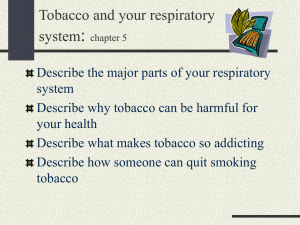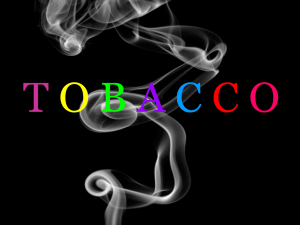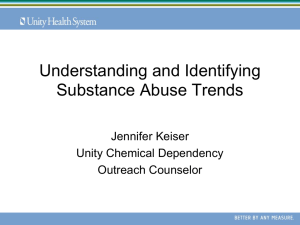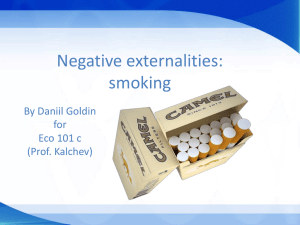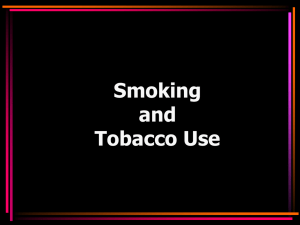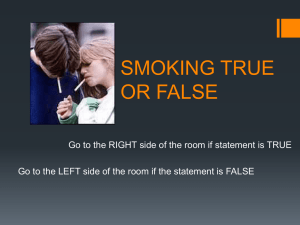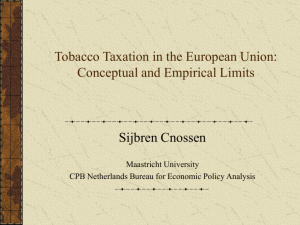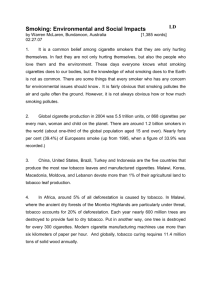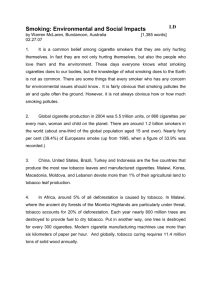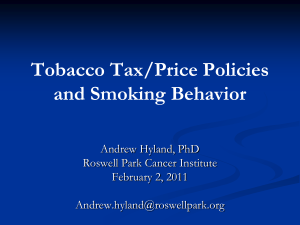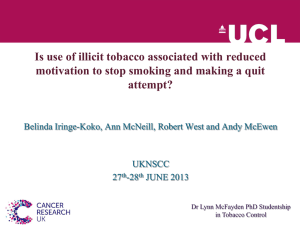Low income smokers` responses to the tobacco tax
advertisement
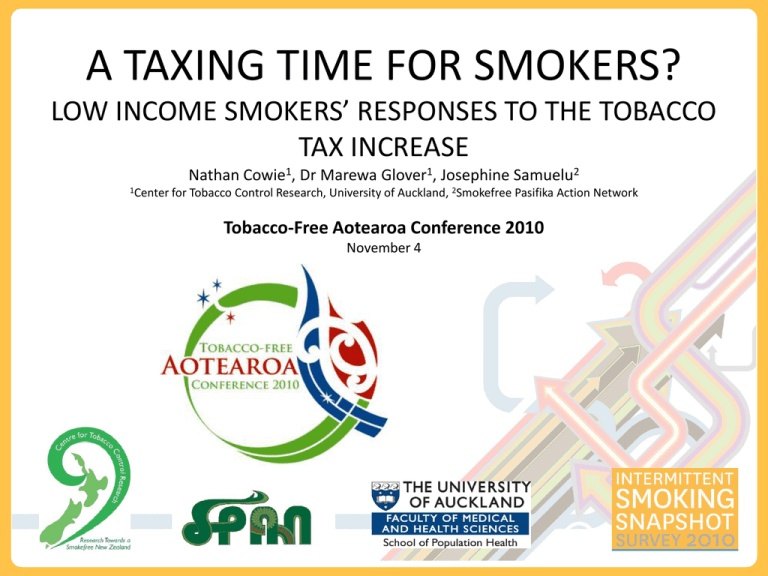
A TAXING TIME FOR SMOKERS? LOW INCOME SMOKERS’ RESPONSES TO THE TOBACCO TAX INCREASE Nathan Cowie1, Dr Marewa Glover1, Josephine Samuelu2 1Center for Tobacco Control Research, University of Auckland, 2Smokefree Pasifika Action Network Tobacco-Free Aotearoa Conference 2010 November 4 The Tobacco Tax Increase • AKA Excise and Excise-equivalent Duties Table (Tobacco Products) Amendment Act 2010 • Introduced to the House under urgency on 28 April 2010 by Hon Tariana Turia • Tax on factory made cigarettes raised 10%, and further increases of 10% scheduled for 1 January 2011, 2012 • Tax on loose (RYO) tobacco raised by 24%, and further increases of 10% scheduled for 1 January 2011, 2012 Excise and Excise-equivalent Duties Table (Tobacco Products) Amendment Act 2010 “increasing the price of tobacco through higher taxes is the single most effective way to decrease consumption and encourage tobacco users to quit” - Dr Margaret Chan, Director General of the World Health Organisation, Statement made at the launch of the WHO Report on the Global Tobacco Epidemic, 2008 “There are only a few matters before this House on which one could stand with one’s hand on one’s heart and declare that this was a life-and-death debate. The rationale for increasing the tobacco excise is very much in this arena. It is purely and simply about saving lives” – Hon Tariana Turia, Speaking to the first reading of the Excise and Excise-equivalent Duties Table (Tobacco Products) Amendment Bill, 28 April 2010 Excise and Excise-equivalent Duties Table (Tobacco Products) Amendment Act 2010 • “But the impact of an excise increase on tobacco is quite dramatic ... It is estimated that after 10 years there will be 40,000 fewer smokers and 300 fewer premature smokingrelated deaths” – Dr Paul Hutchinson, MP, Speaking to the first reading of the Excise and Excise-equivalent Duties Table (Tobacco Products) Amendment Bill, 28 April 2010 The Bill passed that night with a massive majority: 118 votes to 4 Public Reaction to Tax Increase The Headlines • Upped tobacco tax unfairly hits the poorest – John Tamihere, Sunday News 2/05/2010 • $17 a packet: Parliament socks smokers – Audrey Young and Martin Johnston, NZ Herald 29/04/2010 • Editorial: Tough love should work for smokers - NZ Herald 1/05/2010 • Quitline gets record number of calls - Elizabeth Binning, NZ Herald 30/04/2010 • Price rises a big incentive to cut down – Elizabeth Binning, NZ Herald 30/04/2010 Our Hypotheses • People who smoke can adapt to changes in price and Smokefree legislation in a number of ways: • People who smoke will attempt to stop smoking • People who smoke will reduce the number cigarettes they smoke per day • People who smoke will make other changes to their smoking behaviours, such as smoking more of each cigarette, smoking more intensively, smoking less days of the week Method • Non random purposively sampled survey • Focus on Maori, Pacific peoples, areas of high deprivation, current and former smokers • Survey instrument loaded on Personal Digital Assistant (PDA) for anonymous self complete • Participants approached in public places • Asked about smoking behaviours at the time of survey (September) and before tax increase (Easter) Recruitment Locations We visited places we expected to find smokers • Various locations around South Auckland • Shopping malls • Town centres • Busy markets • Sports venues • We also collected data from Christchurch, Waikato and Rodney district. Participant Characteristics • • • • • • • 556 people surveyed 63% Female 55% Maori, 27% Pacific 38% aged 18-24, 62% aged 25 + 55% less than $40K/year, 35% less than $20K 59% smoke within 30 mins, 34% within 5 mins 88% smoked at least once a day, 5% no longer smoke at time of the survey Changes in CPD since the tax increase Changes in cigarettes smoked per day since Easter Cigarettes per day increased 13.0% (n=72) Cigarettes per day stable 68.9% (n=381) Cigarettes per day decreased 18.1% (n=100) Changes in CPD: Under 25s subject to greater volatility, Over 25s more resistant to change Changes in Cigarettes smoked per day Cigarettes per day increased Cigarettes per day stable Cigarettes per day decreased Under 25 year olds 20.0% (n=43) 25 years and older 8.6% (n=29) 63.7% (n=137) 72.2% (n=244) 16.3% (n=35) 19.2% (n=65) Not much change between FM and RYO Type of cigarettes most smoked Factory made 54.9% (n=288) Roll your own 45.1% (n=237) Changes in Type of cigarettes smoked Changed from Factory made to Roll your own 3.1% (n=17) Changed from Roll your own to Factory made 2.7% (n=15 Stopping smoking for 24 hours or more Since Easter (April 2010) how many times did you stop smoking for more than 24 hours? zero times 35.1% (n=191) once or twice 27.4% (n=149) three to five tmes 15.6% (n=85) six to ten times 10.8% (n=59) more than ten times 11.0% (n=60) Recent Quit Attempts How long ago as your most recent quit attempt? Within the last 6 months Under 25 years Over 25 years 49.8% (n=275) 54.4% 46.9% 6 months to 2 years ago 17.2% (n=95) 17.2% 17.2% Longer than 2 years ago 10.3% (n=57) 3.3% 14.8% 22.6% (n=125) 25.1% 21.1% I have never tried to stop smoking Use of assistance at last quit attempt Doctors advice last time tried to quit Yes No Quitline advice last time tried to quit Yes No I don’t know who Quitline are Used NRT last time tried to quit Yes No I don’t know about these products Used prescription stop smoking treatments last time tried to quit Yes No I don’t know about these products 41.0% (n=175) 59.0% (n=252) 27.2% (n=116) 70.5% (n=301) 2.3% (n=10) 41.5% (n=177) 55.7% (n=238) 2.8% (n=12) 9.6% (n=41) 78.0% (n=333) 12.4% (n=53) Summary • Predominantly Maori and Pacific sample of low income and high nicotine dependence • Half the sample had tried to quit smoking altogether in the previous 6 months • 65% had stopped for at least 24 hours since Easter, many multiple times • Negligible switching between FM and RYO – equalisation is working • CPD trending down overall, but a case of swings and roundabouts Acknowledgements Angelik Singh, Ravi Singh, Nadene Addison, Rochelle Newport, Yan Yan Lei, Theresa Butler Shenella Tuilotolava, Candy Eason, Pranav Jani, Jane Stephen, Donna Watson, Marama Pairama, Donna Glover, Nicola MacDonald and Maori SIDS whanau, Karen Evison and Helen Troke-Thomas at the Ministry of Health
